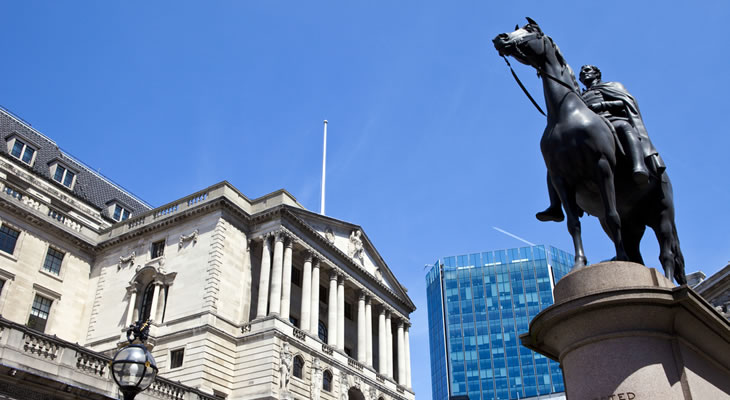Pound to Japanese Yen Exchange Rate Rise Possible on BoE Rate Hike Unity
The Pound to Japanese Yen exchange rate (GBP/JPY) has been tight recently, with Brexit pressures and uncertainty about future Bank of England (BoE) decisions weighing on Sterling.
That could change in the future, however, if BoE officials adopt a unified approach to monetary policy.
Recently, BoE official Silvana Tenreyro has given a dovish speech, arguing against rapid and sustained UK interest rate hikes.
Tenreyro has stated that there is ‘ample time’ before UK interest rates need to be raised again, and that;
‘Perhaps a couple more increases in Bank Rate will be required over the next three years’.
This vague and cautious statement has done little to excite traders, some of whom have been pricing in higher interest rates as soon as the second half of 2018.
If Tenreyro’s tone on the matter changes and she is echoed by other BoE policymakers, the Pound could make consistent gains against the Yen due to rising trader confidence.
Pound Volatility Likely on UK Earnings and Jobs Stats
The GBP/JPY exchange rate could turn highly turbulent on 24th January, when UK earnings and unemployment rate figures will be released.
Current estimates are for a reduction in the unemployment rate from 4.3% to 4.2%, but a similar slowdown in wage growth without bonuses from 2.3% to 2.2%.
Lower wages will spell bad news for the UK economy, as this will undo the recent drop in UK inflation to 3%.
The gap between wages and inflation has been a major issue in recent months, given that a continuing wage squeeze could lead to progressive UK economic damage.
If the upcoming wage data shows a slowdown as expected, the Pound could decline in value against the Yen.
Yen to Pound Exchange Rate Volatility Possible on Future Monetary Policy Plans
The Japanese Yen to Pound exchange rate (JPY/GBP) could be strongly influenced by an upcoming Bank of Japan (BoJ) event, taking place on 23rd January.
On the day, the Japanese central bank will be announcing its interest rate decision for January and releasing the Q1 outlook report.
The Japanese exchange rate is currently at -0.10%, part of the bank’s emergency measures to try and stimulate growth in the Japanese economy.
In addition, the BoJ also practices quantitative easing, where it buys up bonds and assets to try and stimulate economic growth and cause higher inflation.
In the BoJ’s Q4 2017 outlook, the tone was ‘business as usual’, with the report stating;
‘The Bank will continue with QE, aiming to achieve the price stability target of 2% percent.
It will continue expanding the monetary base until the year-on-year rate of increase in observed [inflation] exceeds 2% and stays above the target in a stable manner.
The Bank will make policy adjustments as appropriate, taking account of developments in economic activity +as well as financial conditions’.
Despite this cautious approach, however, recent reports on BoJ meetings suggest that a change could be on the horizon.
A summary of a recent BoJ meeting has described that;
‘When it is expected that economic activity and prices will continue to improve going forward, the situation may occur where the Bank will need to consider whether adjustments [to] interest rates will be necessary’.
While this is an extremely tentative statement, it does open the door to possible monetary policy tightening in the future.
If the Japanese economy shows continued signs of growth and strengthening in the future, the Japanese Yen could appreciate on rising hopes for higher interest rates.


Comments are closed.